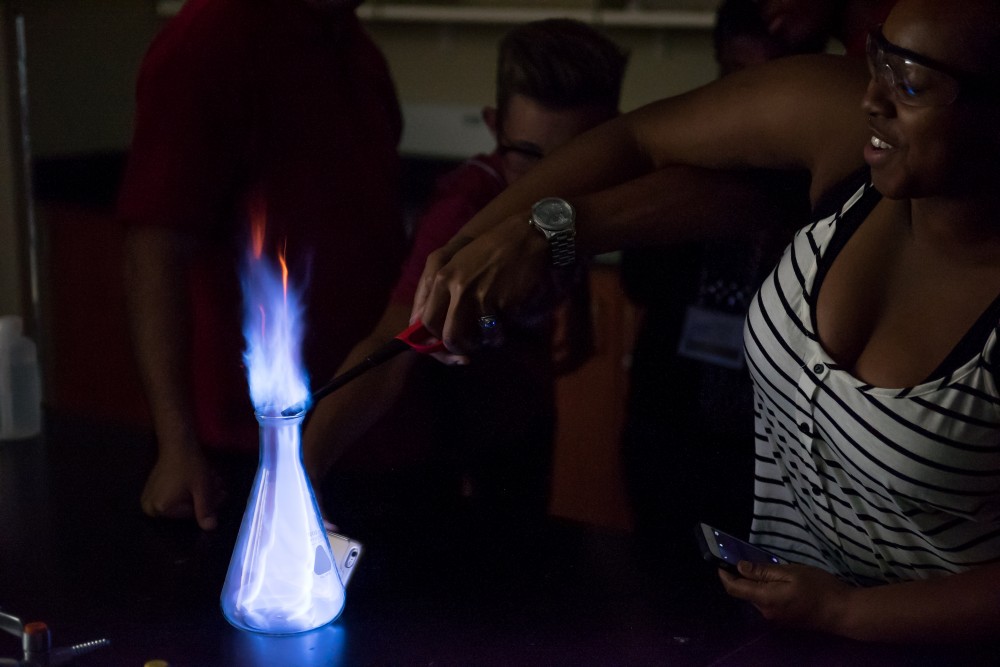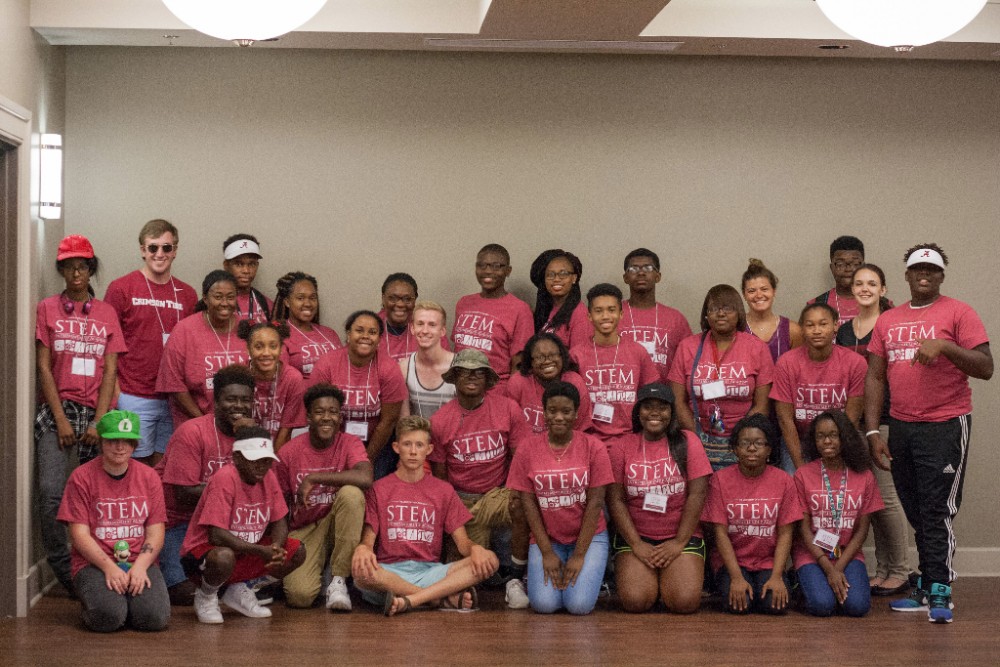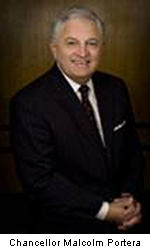Week-long UA STEM Entrepreneurship Academy Gives High School Students a Head Start in Science and Related Areas
- July 27th, 2016
- in News, STEM Entrepreneurship Academy
[envira-gallery id=”6413″]
From July 18–22, some 40 high school students from schools throughout West Alabama got a jumpstart on some of the most important areas in society in general and higher education in particular — math, science, engineering and technology — in the weeklong STEM Entrepreneurship Academy at the University of Alabama. The camp demonstrated in meaningful, memorable and enjoyable ways some of the most important tools and concepts in modern society.
On Wednesday, the students learned more about engineering at a lab in the Science and Engineering Complex at the university. Surrounded by state-of-the-art equipment, they observed the process of combustion and other areas of science and technology that might one day become their life’s interest.

Several students echoed the words of Xavier Turner, who’ll be a junior this fall at Sumter Central High School. Turner told a Tuscaloosa News reporter, “I wish this was longer. I could be here a while.”
The big sell of the program, according to program director Dr. Rosianna Gray of the Center for Community-Based Partnership (CCBP), is that it gives science exposure to students who otherwise may not get it. This was the third year of the program.
Campers also got to see and use many campus facilities, including Morgan Hall, the Bashinsky Computer Lab, Farrah Hall, the Biology Building, and the EDGE Center for Entrepreneurship and Innovation.

Schools represented were Amelia L. Johnson High School in Thomaston; Aliceville High School; Greene County High School in Eutaw; Hale County High School in Moundville; Holt High School; Oakman High School; Pickens County High School in Reform; and Sumter Central High School in York.
“This camp is one of the premier activities of the Center for Community-Based Partnerships,” said Dr. Jim McLean, CCBP executive director. “The message it conveys with respect to potential careers and skills learned are critical to the future of our state.”
The four colleges responsible for organizing camp activities are The College of Arts and Sciences, Culverhouse College of Commerce and Business Administration, College of Education and the College of Engineering. Camp faculty included Dr. Jim Gleason, associate professor of mathematics; Dr. Marcus Ashford, associate professor of mechanical engineering; Dr. Ryan L. Earley, associate professor of biological sciences; Jonathan Corley, computer science doctoral student; Adriane Sheffield, educational psychology doctoral student; and Douglas Craddock, higher education doctoral student.

